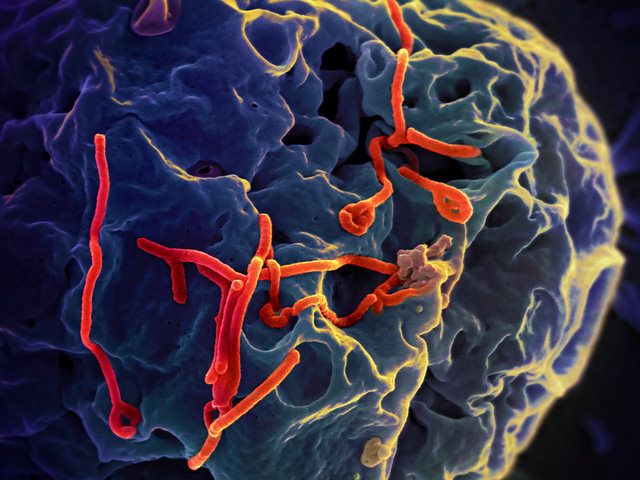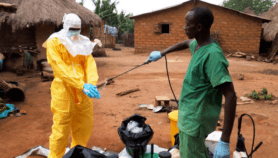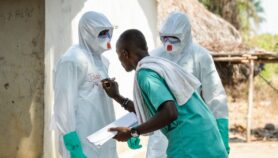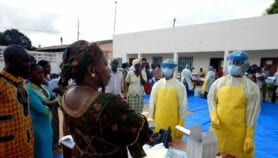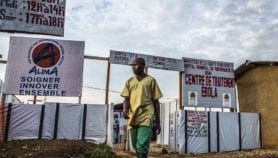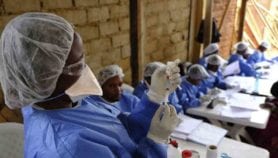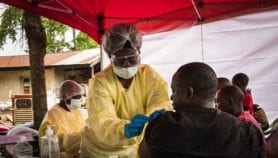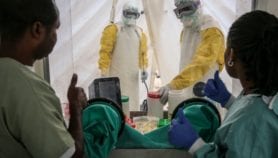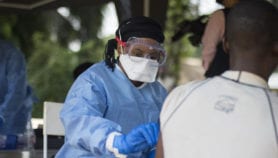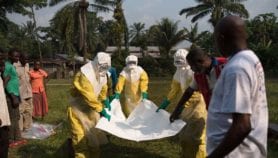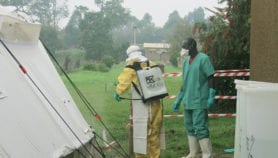By: Joshua Howgego
Send to a friend
The details you provide on this page will not be used to send unsolicited email, and will not be sold to a 3rd party. See privacy policy.
Three hundred vials of an experimental Ebola vaccine are due to arrive in Liberia today, where they are to be tested in around 30,000 people.
The vaccine delivers genetic material from the Zaire strain of Ebola within a chimpanzee cold virus. In theory, patients who receive this are exposed to the virus in a safe way and have a chance to develop a natural immune response to it.
GlaxoSmithKline (GSK) says initial data from tests on 200 healthy volunteers in Mali, Switzerland, the United Kingdom and the United States show that the vaccine it developed with the US National Institutes of Health (NIH) is “acceptably” safe.
The Liberian trial is due to start in the coming weeks as long as it receives regulatory approval. It will be led by the NIH and will explore whether the vaccine produces a meaningful level of immunity in patients.
The news comes just a few days after Mali’s health minister declared the country free of Ebola. It had reported six deaths during the current outbreak.
Jeremy Farrar, director of the Wellcome Trust, which part-funded the vaccine’s first trials, said in a statement today: “We may, at last, have reached a turning point in what has been the worst Ebola outbreak in history.”
“We may, at last, have reached a turning point in what has been the worst Ebola outbreak in history.”
Jeremy Farrar, Wellcome Trust
Yet he added that the disease is continuing to take a terrible toll elsewhere in the region and so this is “certainly not the time for national and international efforts to be reduced. If anything, efforts need to be redoubled to bring this epidemic to a complete end.”
Moncef Slaoui, GSK’s chairman of global vaccines, said in a statement that today’s shipping was an encouraging sign. But he added that whether it could be used in mass vaccination campaigns would depend, among other things, on how quickly more doses could be made and whether organisations such as the WHO were satisfied that it does not cause significant side effects.
Other research teams are exploring additional ways to treat Ebola. Last month, a trial funded by the Bill & Melinda Gates Foundation began in Liberia to test whether transfusing blood from Ebola survivors to other infected people would offer protection. While this is an early trial involving around 70 people, there are hopes that the strategy may be quicker overall, as there would be no need to manufacture a vaccine.
Another Ebola vaccine, called VSV-EBOV, is undergoing safety trials in humans.
Last month, the pharmaceutical company behind this vaccine, NewLink Genetics, said that, depending on the results of these trials, the NIH planned to initiate a large study to evaluate the safety and efficacy of the treatment in early 2015.


